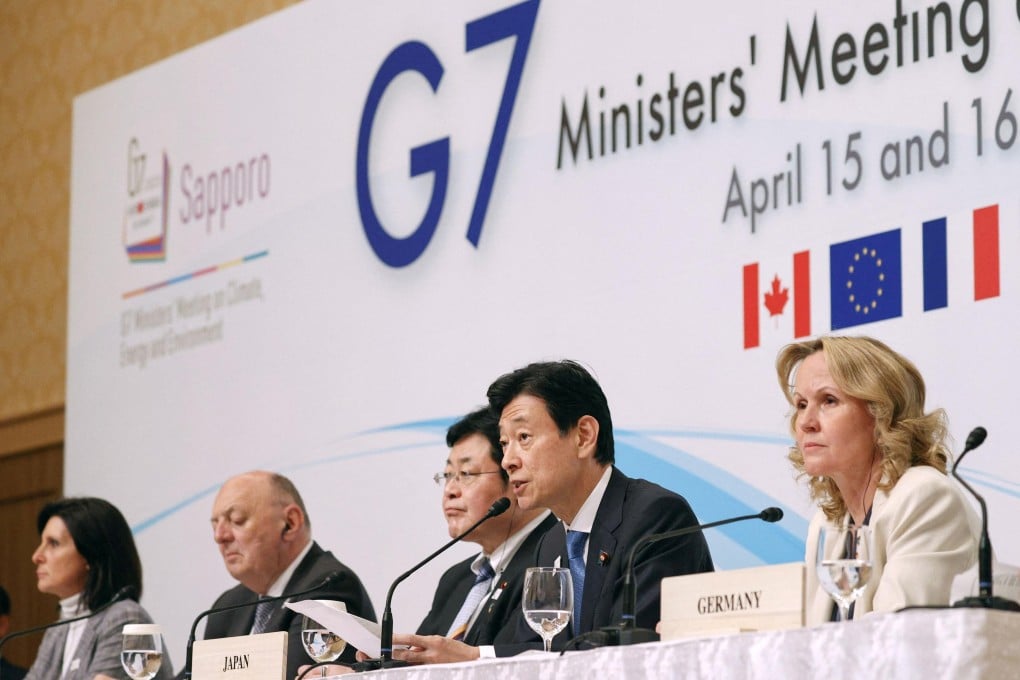Advertisement
The View | Climate change: G7 leaders must scale up commitments and cooperation with the developing world
- The G7 should accept it needs outside help as the efforts of its members alone cannot limit global warming to 1.5 degrees Celsius
- Coordinating with developing countries is essential, but the G7 must also understand these nations’ growth concerns around emissions reductions and the need for support
Reading Time:3 minutes
Why you can trust SCMP
3

The Group of Seven (G7) leaders are set to meet in Hiroshima next month to contest daunting global challenges. The host city was hit by an atomic bomb almost 78 years ago, resulting in a historical tragedy. Those who visit the city will see a message to humanity etched on the Hiroshima Memorial Cenotaph: “Let all the souls here rest in peace, for we shall not repeat the evil.”
Today, we face another human-induced threat in climate change. As the world seeks to prevent the full-scale damage climate change is capable of, it seeks the kind of determination Hiroshima showed while rebuilding itself into a resilient, prosperous city. That is why it is vital to promote international cooperation, and G7 leaders must come to an agreement to scale up efforts on climate action.
The G7 bears the responsibility for leading efforts to reduce global carbon dioxide emissions as developed Western countries have emitted most of the world’s greenhouse gases since the start of the Industrial Revolution. We hope the G7 leaders can focus on having meaningful discourse on climate change, reaffirm their prior climate commitments and allow for the emergence of new commitments to help escape another human catastrophe.
Advertisement
The G7 also needs to accept that its members alone cannot limit global warming to 1.5 degrees Celsius. Recent scientific estimates show that doing so would require emissions reductions of around 43 per cent by 2030, relative to 2019 levels.
Therefore, the group needs to coordinate with developing countries. However, the reality is that geopolitical tensions between China and the United States, and Russia’s invasion of Ukraine, have hampered global emission-reduction efforts. Last year’s G7 summit in Germany included a pledge that the war would not hinder climate and biodiversity goals, and we hope the group proposes bold, pragmatic and tangible initiatives to achieve that.
Advertisement
Rising emissions from developing countries such as China and India are also complicating climate negotiations. It is imperative the G7 understands that these countries have their own growth concerns around emissions reductions. However, the group can encourage initiatives that promote climate-smart growth in developing countries. Bringing these initiatives to life will require the G7 and emerging economies to enhance communication and cooperation on climate finance, and research and development.
Advertisement
Select Voice
Choose your listening speed
Get through articles 2x faster
1.25x
250 WPM
Slow
Average
Fast
1.25x

.jpg?itok=un3hbq_B&v=1682403768)
